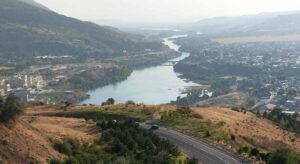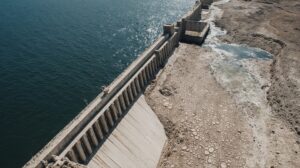President of the Republic of Uzbekistan Shavkat Mirziyoyev addressed the leaders of the Economic Cooperation Organization (ECO) during the summit held in the historic city of Khankendi, emphasizing the importance of regional integration, strategic economic cooperation, and collective action to address global challenges.
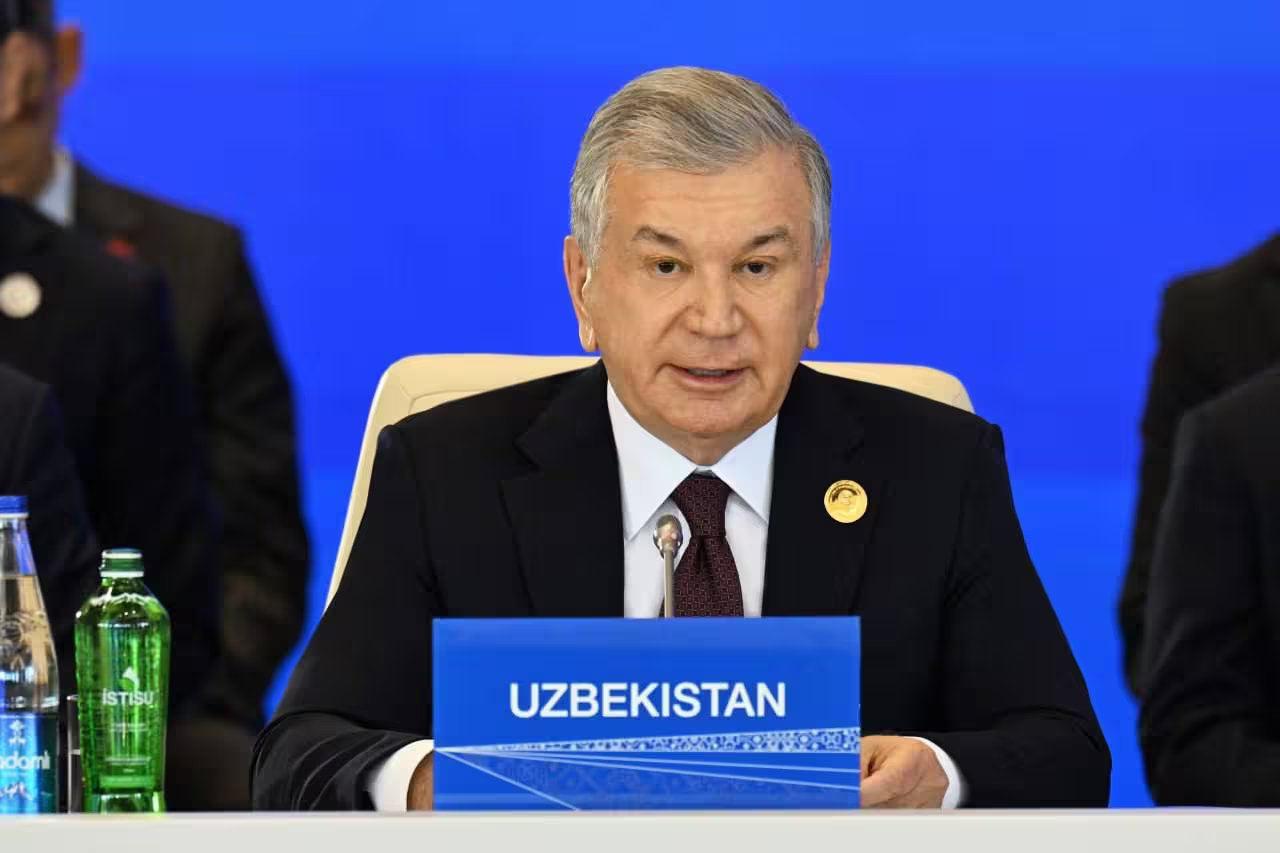
Reflecting on the progress made since the historic meeting in Tashkent, President Mirziyoyev noted the significant strides in strengthening ECO’s institutional capacity and expanding cooperation into new and emerging areas.
He commended Kazakhstan for its effective chairmanship of the Organization and welcomed the participation of the Interim Government of Afghanistan, which returned to the summit after a long hiatus. He emphasized that Uzbekistan views Afghanistan as an integral part of the ECO space and an important partner in regional economic cooperation and transport connectivity.
Addressing Conflict and International Security
Turning to the global context in which the summit was held, President Mirziyoyev expressed concern about the escalating number of conflicts within the ECO region itself. He noted that the erosion of international law and the weakening of global security institutions had made diplomacy more difficult and increased the risk of violence.
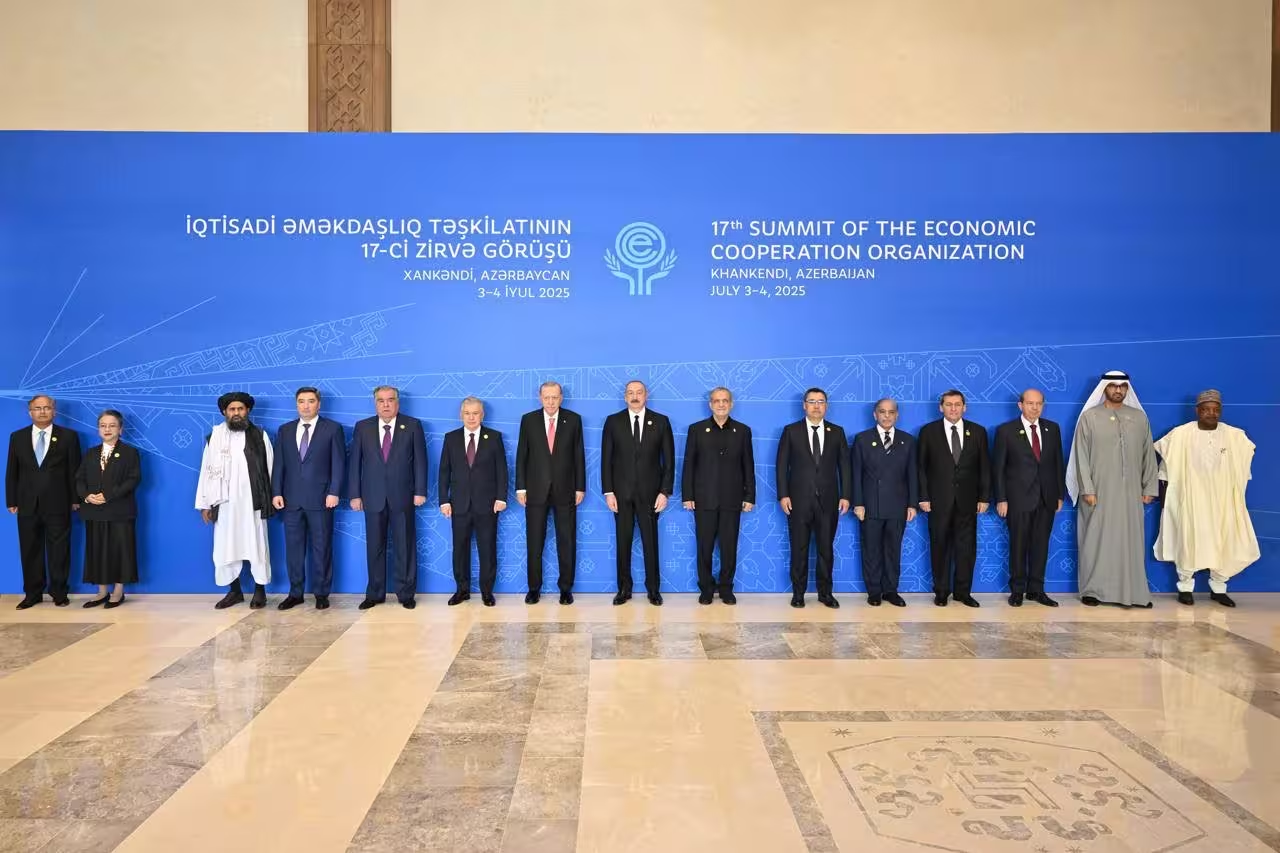
In particular, he highlighted the recent military actions against the Islamic Republic of Iran, a member of the Organization, warning that such developments could lead to a regional war and an environmental catastrophe. He welcomed the ceasefire agreement reached between Iran and Israel, calling it a crucial step toward regional stability and encouraging all parties to resolve disputes through diplomatic and constructive negotiations.
President Mirziyoyev also spoke on the importance of nuclear disarmament and called on the international community to expand the geography of nuclear-weapon-free zones. He emphasized that lasting peace in the Middle East cannot be achieved without a just and fair resolution of the Israeli–Palestinian conflict.
He called for an immediate end to military operations in the Gaza Strip, the removal of barriers to humanitarian aid, and the creation of an independent Palestinian state in accordance with United Nations resolutions.
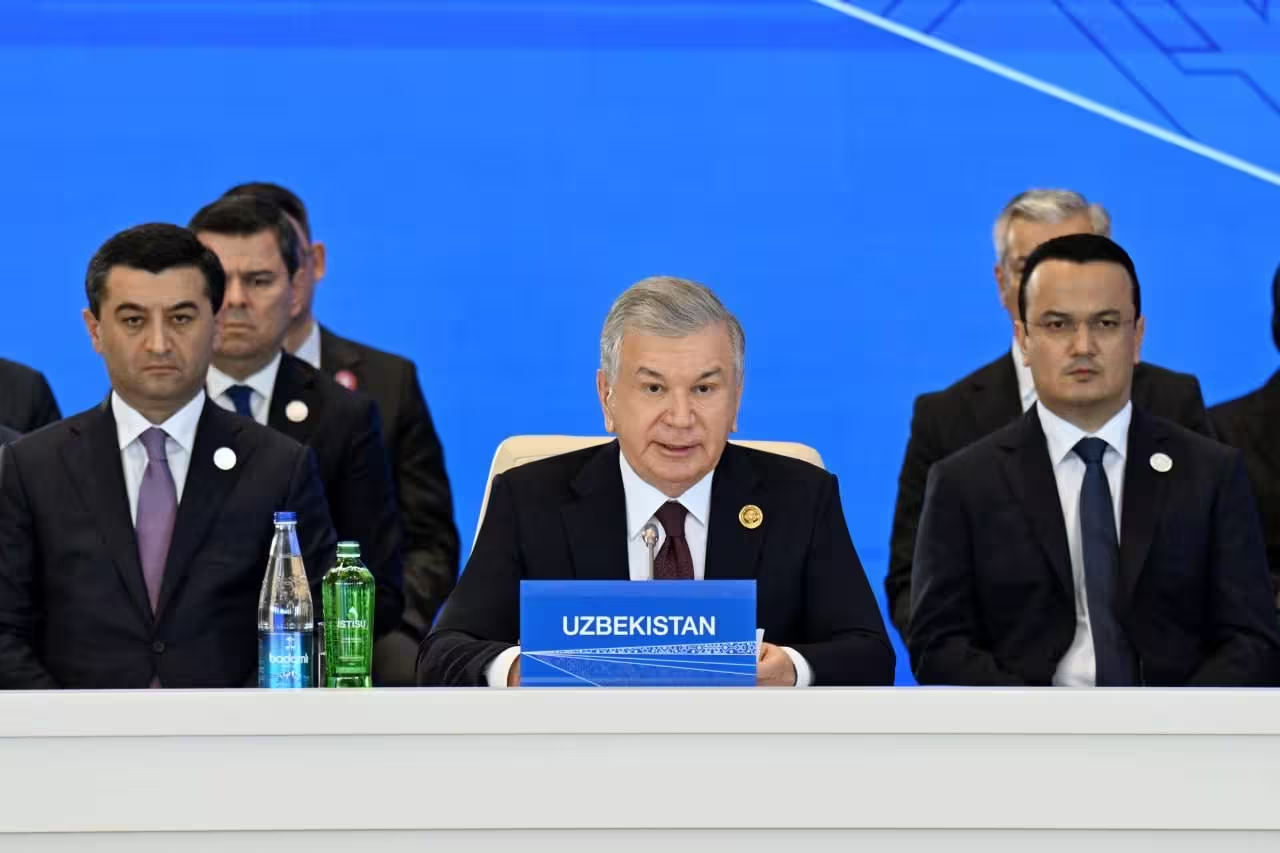
Economic Partnership as the Foundation of Peace
Shifting focus to economic cooperation, Mirziyoyev stressed that the foundation of lasting peace and development lies in robust and inclusive economic partnerships. He proposed adopting a long-term roadmap titled “Strategic Goals of Economic Cooperation – 2035,” which would guide the Organization’s development over the next decade.
The strategy would include traditional areas such as trade, investment, transport, energy, agriculture, ecology, tourism, and education, while also prioritizing new spheres like innovation, artificial intelligence, and digital technologies.
To address trade inefficiencies, President Mirziyoyev urged the simplification of trade in goods and services, the gradual elimination of technical and non-tariff barriers, and the expansion of e-commerce. He pointed out that mutual trade within the ECO remains low, totaling only $95bn in 2024—just 10% of the member states’ overall trade turnover.
In response, he proposed holding a meeting of ECO trade ministers in Tashkent this year to discuss strategic issues and conclude an Agreement on Trade Facilitation. Additionally, he proposed creating a system of “Green Corridors” to streamline agricultural trade and facilitate the free flow of goods and information.
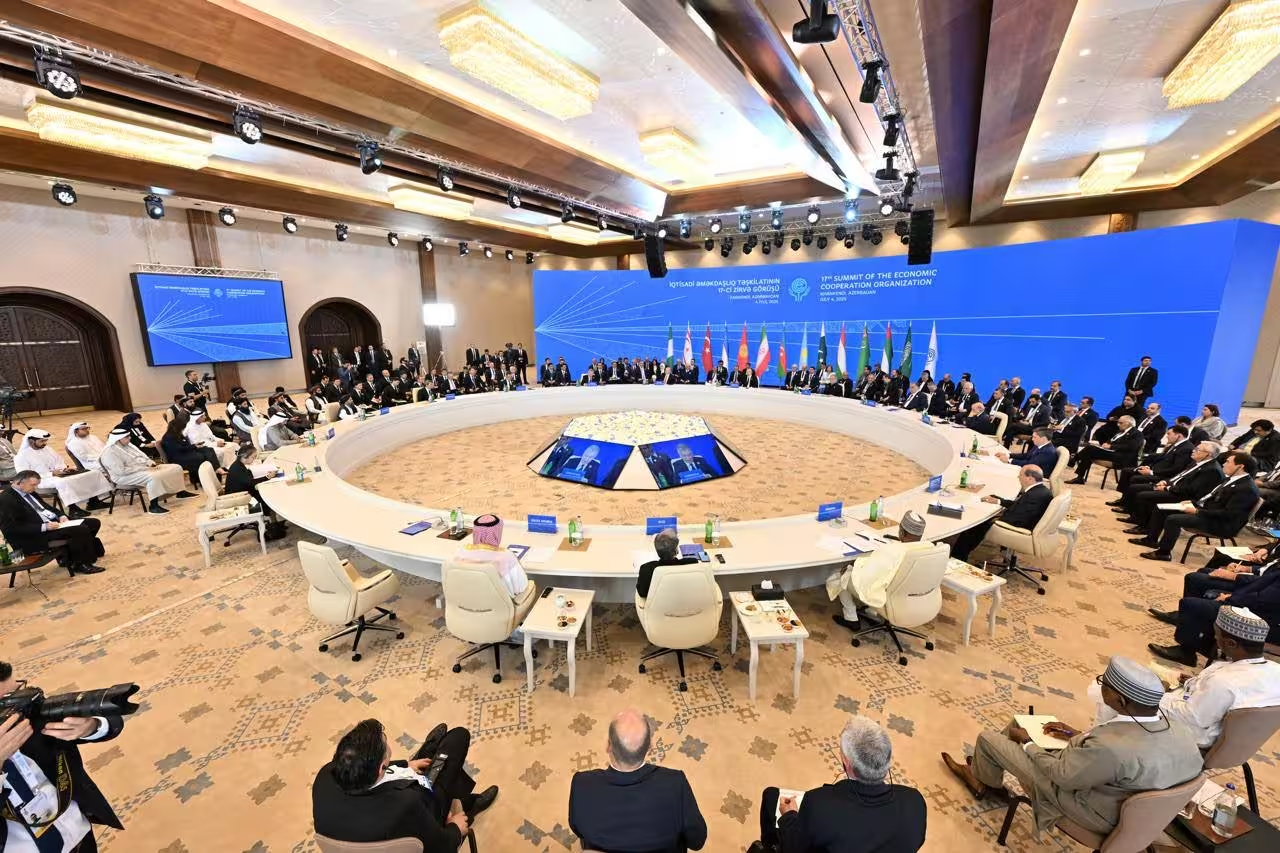
Boosting Investment and Infrastructure
To further boost economic ties, President Mirziyoyev introduced a new long-term initiative called the “Eco-Invest” Program, aimed at enhancing transparency in the investment climate and attracting private investors, banks, and international financial institutions to promising regional projects. He emphasized that the program would elevate investment cooperation and contribute to the development of infrastructure and industries across the ECO member states.
Addressing the need for improved regional connectivity, Mirziyoyev highlighted the risks posed by recent geopolitical disruptions to global supply chains. He cited the launch of the China–Kyrgyzstan–Uzbekistan railway project as a milestone and underscored its future integration with the Trans-Afghan corridor as a way to strengthen regional transit networks.
To support this, he called for the establishment of a Digital Transport and Customs Office to coordinate digital transformation in the transport and logistics sector. He also urged intensified expert-level negotiations to ensure the implementation of this initiative.
Recognizing the potential of tourism and aviation to boost economic ties, the Uzbek leader proposed launching new regional air routes, fostering innovative cooperation among airlines, and developing joint marketing strategies between tourism agencies and aviation companies.
He suggested organizing a National Airlines Forum in Samarkand to discuss these priorities. He also emphasized the potential to double tourist arrivals in the ECO region and proposed creating a Roadmap for the Expansion of Tourism Services to help achieve this goal.
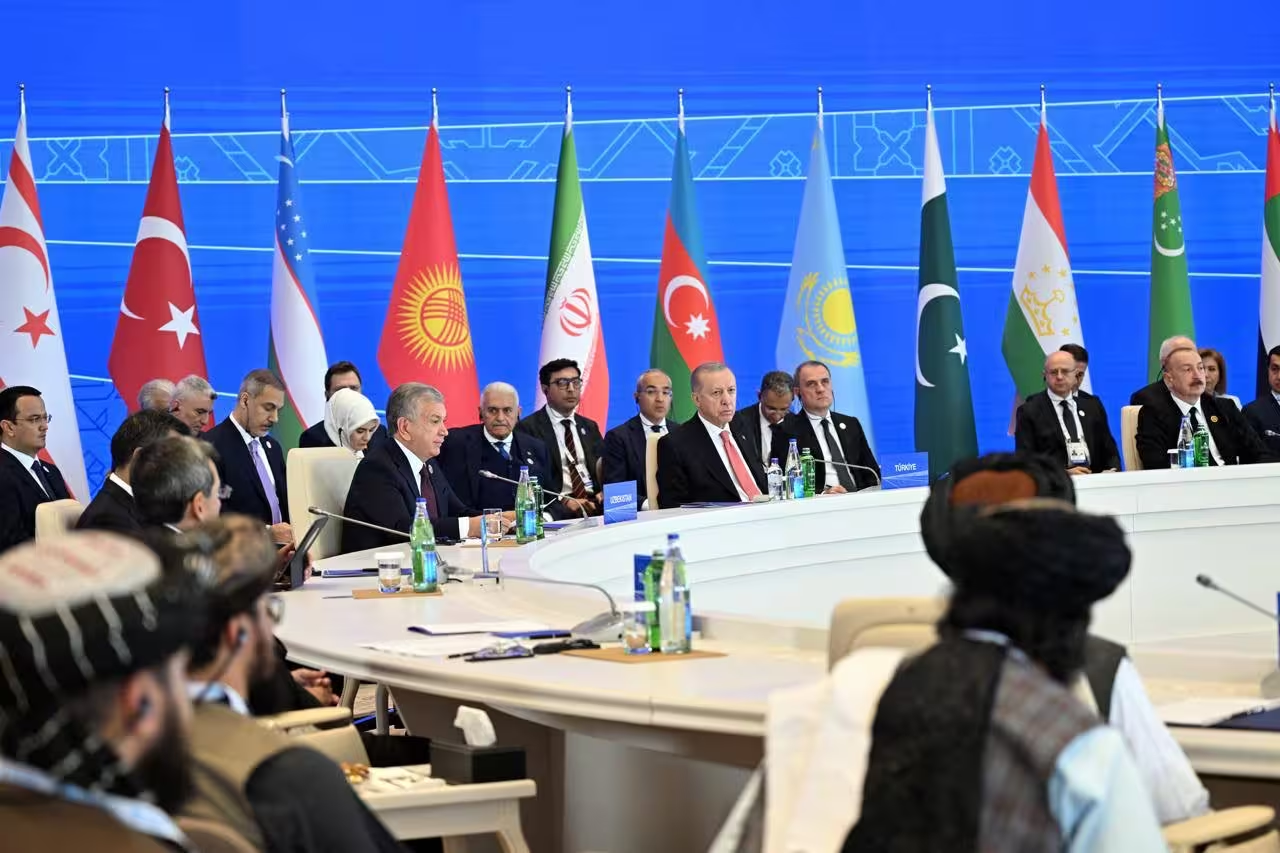
Climate Cooperation and a Green Future
President Mirziyoyev also addressed the pressing issue of climate change and the shared environmental challenges facing the region. He reaffirmed Uzbekistan’s strong support for the full implementation of commitments made at the COP-29 Global Climate Summit, which was successfully held in Baku.
As part of the regional climate agenda, he proposed developing a Transboundary “Green Initiative” focused on planting forests in desert areas and creating recreational zones, contributing to sustainable development and environmental preservation across member states.
In conclusion, President Mirziyoyev commended the efforts of the ECO High-Level Committee and proposed assigning it the task of drafting recommendations for institutional reforms ahead of the next summit.
These reforms, he argued, would strengthen the Organization’s global standing, enhance its effectiveness, and better align its operations with modern needs. He expressed confidence that the summit would serve as a turning point in advancing comprehensive and practical cooperation among member states.
“I am convinced that today’s summit will give a new impetus to achieve our commitments and plans in elevating multifaceted and practical cooperation to a new level,” President Mirziyoyev said, ending his speech with a message of unity, optimism, and shared purpose.
